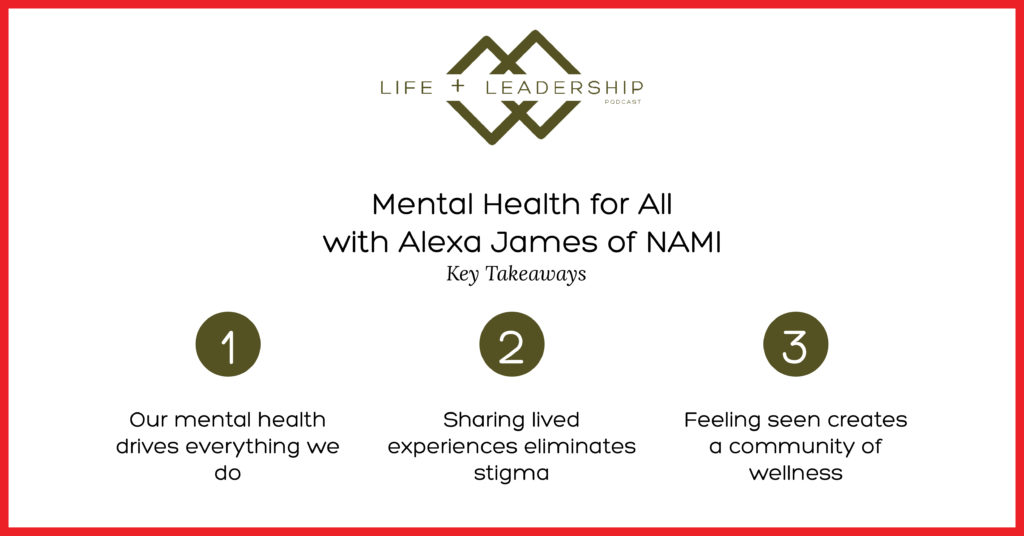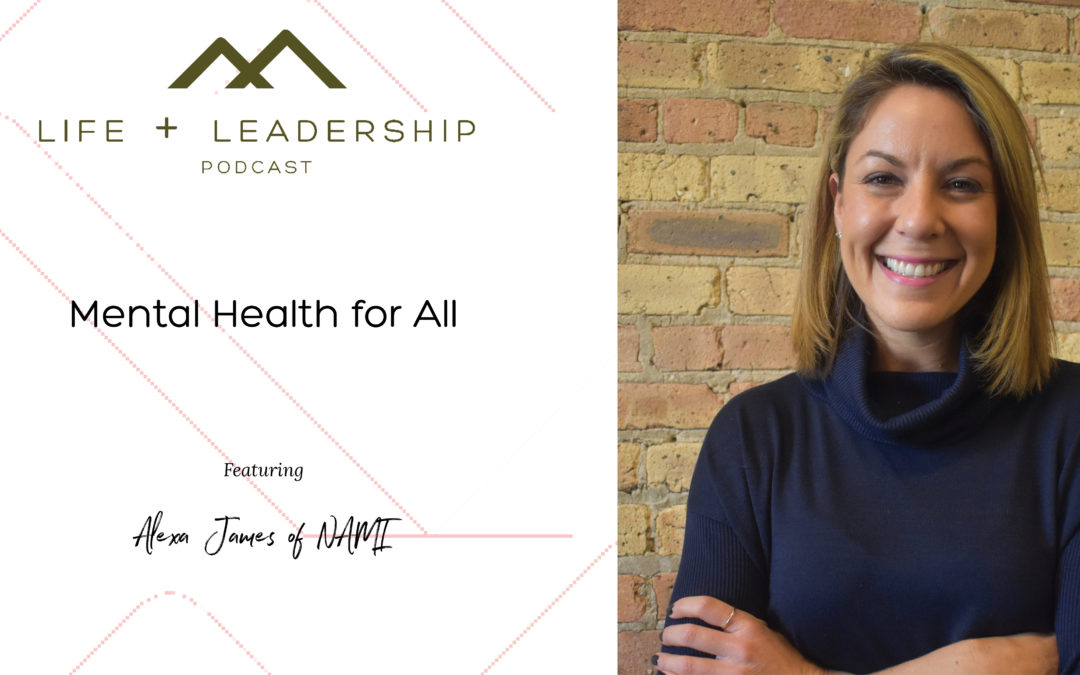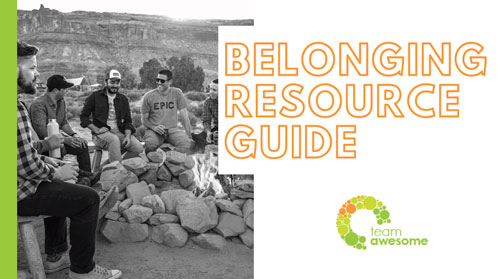We all assess how we’re feeling physically on a daily basis and use that data to inform our decisions. (If our knee hurts, we don’t run that day.) But we don’t do that with our mental health. Despite the fact that it drives our physical health and the way we see the world, we tend to consider mental wellness a luxury rather than a foundational piece of our wellbeing.
Today, we’re joined by Alexa James, the Executive Director of the Chicago Chapter for the National Alliance on Mental Illness (NAMI), an organization dedicated to providing hope and improving the quality of life for people affected by mental health conditions. A licensed clinical social worker with Master’s Degrees in Social Work and Child Development, Alexa has devoted her professional life to serving people living with mental illness as well as those impacted by poverty and trauma.
Alexa begins by explaining how biology, genetics and environment impact our mental health, offering insight into what a toxic community looks like and what we can do to create communities of wellness. She introduces us to the idea of proactively asking employees what accommodations they need to navigate stress and describes how she set the tone for her team by prioritizing her own mental health. Listen in for advice on using person-first language to talk about people living with mental illness and learn what YOU can do to remove the stigma associated with mental health.
Themes explored in this week’s episode:
- How Alexa defines mental health as the ability to manage stress in a way that doesn’t interfere with our relationships, our work or our sense of self
- How our mental health impacts our physical health and guides the way we see the world
- How biology, genetics and environment contribute to the development of mental illness
- The idea of creating treatment declarations around what accommodations we need when we get stressed
- Alexa’s insight on what a toxic community looks like
- Alexa’s understanding of wellness as the responsibility she has to set the tone in the organizations she works with
- Why NAMI focuses on resources and environment to create communities of wellness
- Alexa’s take on the unique mental wellness needs of high-profile leaders and why it’s powerful when they acknowledge their challenges
- How the media and our healthcare system perpetuate the stigma around mental health
- Why sharing our lived experiences is the first step in removing the stigma associated with mental illness
- Using person-first language to talk about people living with mental illness

Resources from this episode:
- Learn more about NAMI Chicago at https://www.namichicago.org/
- Reach out to the NAMI Helpline at (833) 626-4244
- Read E. Keller Fitzsimmons’ Lost in Startuplandia
- Find your local chapter of NAMI at https://nami.org/Home
- Access the NAMI Chicago fact sheets
- Explore resources on mental health + mental health stigma
- Get more information about stress management
- Learn how to support a loved one with mental illness
We would love to hear from you! Have an idea for a podcast or a question you want us to address? Interested in additional support, resources and workshops? Here are all the ways you can interact with us!
- Tweet us! @tegantrovato and @TeamAwesomeMKE
- Email us: tegan@BrightArrowCoaching.com and Katie@TeamAwesomeCoaching.com
- Follow us on Facebook @BrightArrowCoaching and @TeamAwesomeCoaching
- Follow us on Instagram @TeganTrovato and @katie_rasoul
- Connect with us on LinkedIn: Tegan Trovato and Katie Rasoul
- Watch the podcast on the Life & Leadership YouTube Channel
- Download free tools and sign up for our newsletters, events and workshops by visiting: https://www.brightarrowcoaching.com/ and https://www.teamawesomecoaching.com/
Quotes from the episode:
“There is so much adversity. There is so much trauma. It is in our face all the time. There is constant unsteadiness. We’re being asked to pivot, and I’m not sure we really, as a culture, have the tools to enhance our mental wellness while managing a really volatile community right now.”
“There has to be a marriage between mental health and physical health.”
“Studies demonstrate that untreated mental health issues [and] exposure to trauma changes our DNA. It changes the way that our respiratory system works, that our nervous system works.”
“Mental illness is not [necessarily] forever. Some people have a diagnosis situationally.”
“The quality of our life is directly defined by the quality of our relationships.”
“Community is whatever we make of it. It’s who is surrounding us that inspires us and reenergizes us as opposed to depletes us.”
“To me, wellness means that I honor the privilege and responsibility of setting the tone for the people around me and that I am hyperaware that my energy … is contagious.”
“That’s how you spread hope: You share your story.”
“The likelihood of violence for somebody with mental illness is very, very low, and a lot of people are actually suffering very quietly in the background. These are not folks who are unpredictable in their behaviors.”
“The way that we get rid of stigma is by sharing lived experiences.”



Recent Comments